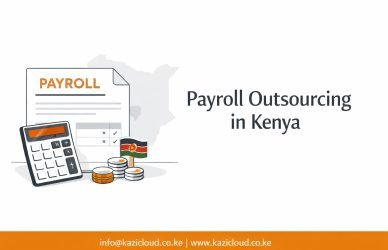Key Highlights
- Whether you’re hiring your first employee, growing a large organization, or navigating your own career, understanding this Act is a non-negotiable necessity.
- This article provides an easy-to-digest yet comprehensive breakdown of the Employment Act and why it remains the cornerstone of fair labor practices in Kenya.
- The Kenya Employment Act, 2007 is not just a legal obligation—it’s a tool for promoting fairness, productivity, and dignity in the workplace.
What Every Employer and Employee Must Know
Employment in Kenya is governed primarily by the Kenya Employment Act, 2007—a vital legal framework that regulates the relationship between employers and employees. Whether you’re hiring your first employee, growing a large organization, or navigating your own career, understanding this Act is a non-negotiable necessity.
This article provides an easy-to-digest yet comprehensive breakdown of the Employment Act and why it remains the cornerstone of fair labor practices in Kenya.
What is the Employment Act, 2007?
The Kenya Employment Act, 2007 is the principal legislation that outlines the minimum standards for employment. It aims to protect both employees and employers by ensuring clarity, fairness, and accountability in all labor engagements. This law replaced the former Employment Act (Cap. 226), modernizing Kenyan labor law in line with international standards.
It covers:
- Employee rights and protections
- Employer obligations
- Contract terms
- Leave entitlements
- Dismissals and dispute resolution
- Workplace safety and more
Why It Matters
Understanding the Employment Act is essential for:
- Employers: To avoid legal disputes, ensure compliance, and build fair workplaces.
- Employees: To be aware of your rights and when they are being violated.
- HR Professionals & Recruiters: To design compliant policies and practices.
Failure to comply can lead to:
- Lawsuits and fines
- Reputational damage
- Employee dissatisfaction and turnover
Key Sections of the Employment Act You Should Know
1. Prohibition of Forced Labour (Section 4)
Employment must be voluntary. Coercing anyone into work is a criminal offence under the Act.
2. Equality and Non-Discrimination (Section 5)
Employers must not discriminate based on race, sex, ethnicity, religion, disability, or political affiliation.
3. Employment Contracts (Sections 8–13)
Every employee must receive a written contract within two months of joining. This includes job description, working hours, pay, leave, and other key terms.
4. Wages and Payment (Sections 17–20)
The Act mandates:
- Timely payment
- Itemized pay statements
- Restrictions on unlawful deductions
5. Leave and Working Hours (Sections 27–30)
Employees are entitled to annual leave, sick leave, maternity/paternity leave, and rest days.
6. Termination (Sections 35–40)
Dismissals must be lawful, with due notice or pay in lieu. Redundancy procedures are strictly outlined.
7. Workplace Conduct and Safety
Sexual harassment policies, medical attention, and access to clean water are mandatory for employers with more than 20 staff.
Impact on Employment in Kenya
Since its implementation, the Employment Act has:
- Enhanced employee protections
- Standardized employment practices
- Improved transparency in wage structures
- Created legal grounds for resolving disputes
Despite this progress, many employees still work under unclear terms, and many small businesses operate in ignorance of the law.

Common Misconceptions
- “Verbal contracts are fine.”
While technically legal, written contracts are mandatory within 2 months. - “Probation means you can fire anyone anytime.”
No—you must still give notice and valid reasons even during probation. - “Casual workers have no rights.”
Wrong—casual employees still have basic rights under the Act.
How Employers Can Stay Compliant
- Issue written contracts within the legal timeframe
- Remit statutory deductions (NSSF, NHIF, PAYE)
- Provide proper leave entitlements
- Maintain employment records
- Develop internal HR policies aligned with the Act
How Employees Can Protect Their Rights
- Ask for a written contract
- Keep copies of all employment documents
- Know your leave and pay entitlements
- Report violations to the Ministry of Labour or ELRC
The Kenya Employment Act, 2007 is not just a legal obligation—it’s a tool for promoting fairness, productivity, and dignity in the workplace. Whether you’re hiring or job hunting, understanding this Act equips you with the knowledge to engage in employment the right way.
At Kazicloud Careers, we specialize in HR consultancy, employment law advisory, and workplace policy development. If you’re an employer needing help with compliant HR structures or an employee unsure about your rights, we’re your trusted partner.
Contact us today to bring clarity, compliance, and fairness into your employment practices.
This article is intended for educational purposes only and does not constitute legal advice. Employment laws are subject to change. Please consult a qualified employment lawyer for detailed legal guidance.





